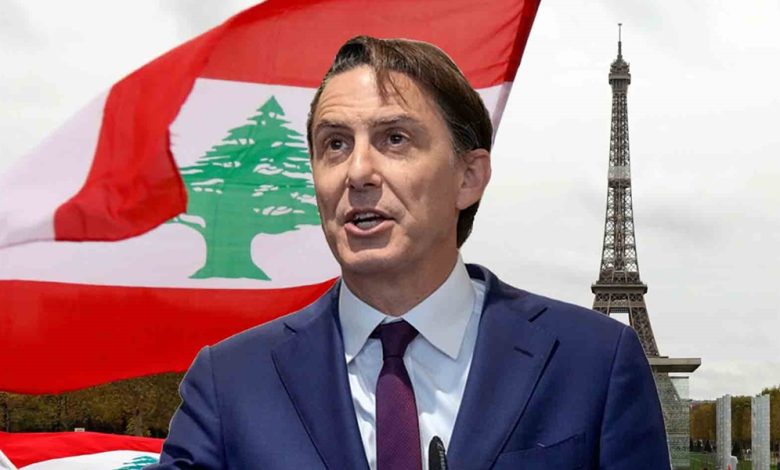الموقف الفرنسي من ورقة هوكشتاين لوقف الحرب: قراءة تفصيلية
في ظل التطورات المتسارعة بشأن الورقة التي قدمها المبعوث الأميركي آموس هوكشتاين بهدف التوصل إلى تسوية لوقف الحرب بين لبنان والكيان الإسرائيلي، باتت الأضواء مسلطة على موقف فرنسا من مضمون هذه الورقة، لا سيما أن لبنان سبق وأبدى رفضه لبعض البنود المدرجة فيها. تأتي الورقة كجزء من الجهود الدولية لتنفيذ القرار 1701، الذي يمثل إطارًا لضبط التصعيد في الجنوب اللبناني.
فرنسا ودورها المحوري في التسوية
وفق مصادر دبلوماسية، فإن فرنسا لم تُبلّغ رسميًا عن زيارة لهوكشتاين إلى باريس اليوم، إلا أن النقاش المتوقع في حال حدوث الزيارة سيركز على تقديم ضمانات تأخذ بعين الاعتبار السيادة اللبنانية، وهو مطلب أساسي سبق أن أبلغته فرنسا لكل من الولايات المتحدة وإسرائيل. كما يُتوقع أن تراجع باريس الشروط المضافة حديثًا إلى الورقة، والتي تعتبر صعبة القبول من الجانب اللبناني، مثل تعديل لجنة المراقبة الثلاثية وآليات عملها.
أشارت المصادر إلى أن وجود فرنسا في لجنة المراقبة يمكن أن يوازن النفوذ الأميركي، باعتبار أن باريس تُعد من أكثر الدول الداعمة للبنان على الساحة الدولية. هذا الدعم أكد عليه كل من رئيس مجلس النواب نبيه بري ورئيس حكومة تصريف الأعمال نجيب ميقاتي، اللذين أثنيا على الموقف الفرنسي الساعي إلى تخفيف المعاناة عن اللبنانيين.
تصعيد متعمد لضبط شروط التفاوض
يُرجّح أن رفع سقف المطالب الإسرائيلية في الورقة، بالتنسيق مع الجانب الأميركي، يهدف إلى تحقيق مكاسب تفاوضية أكثر. ومع ذلك، فإن الشروط المرتبطة بسيادة لبنان قوبلت برفض صريح من الرئيسين بري وميقاتي. يشدد لبنان على الالتزام بتطبيق القرار 1701، مع تعزيز وجود الجيش اللبناني في الجنوب، دون تقديم تنازلات تؤثر على السيادة الوطنية.
التحديات أمام المفاوضات
في ظل التصعيد الإسرائيلي الواضح على مختلف الجبهات خلال الأسابيع الأخيرة، يظل نجاح المفاوضات مرهونًا بقبول الطرفين ببنود متوازنة تضمن تنفيذ القرار 1701 من الطرفين، لا من لبنان فقط. تشير التسريبات إلى أن إسرائيل لم تُقدّم أي ضمانات ملموسة في الورقة الأميركية-الإسرائيلية، مما يثير التساؤلات حول جدية هذه المبادرة.
رهانات إسرائيلية وأفق سياسي غامض
تتعلق بعض العقبات بارتباط القرار بيد رئيس الوزراء الإسرائيلي بنيامين نتنياهو، الذي يبدو أنه يعوّل على التغييرات في الإدارة الأميركية بعد الانتخابات الرئاسية. فقد يتطلّع نتنياهو إلى مزيد من الدعم من الرئيس المنتخب دونالد ترامب، في ظل دعم واشنطن المستمر لإسرائيل بمختلف أشكال المساعدات العسكرية والسياسية.
دور فرنسا في تحسين الشروط
إذا ثبتت زيارة هوكشتاين إلى باريس، يُتوقع أن تضغط فرنسا لتخفيف بعض الشروط المفروضة في الورقة، خاصة أن لبنان لن يقبل بتسوية تفرض انتقاصًا من سيادته. يأتي هذا كجزء من الجهود المستمرة لوقف الحرب، التي قد تطول إذا لم يتم التوصل إلى اتفاق متوازن، يحفظ مصالح جميع الأطراف.
المصدر: غاضب المختار – اللواء
France’s Stance on Hochstein's Proposal for Ceasefire: A Comprehensive Analysis
Amos Hochstein’s proposal for a ceasefire between Lebanon and Israel has become the focus of international attention, especially regarding France’s position on its contents. Lebanon has already rejected several key provisions of the document, which is part of efforts to implement UN Resolution 1701, aimed at de-escalating tensions in southern Lebanon.
France's Crucial Role in the Mediation
Diplomatic sources have reported that Hochstein’s visit to Paris has not been officially confirmed. However, if the visit takes place, discussions are expected to center on guarantees that respect Lebanon’s sovereignty, a critical demand previously conveyed by France to both the U.S. and Israel.
France is likely to review the conditions recently added to the proposal, including modifications to the trilateral monitoring committee's structure and operations. French involvement in the monitoring committee is seen as a balancing force against U.S. influence, given France’s historical support for Lebanon. This support has been highlighted by Lebanese officials, including Speaker of Parliament Nabih Berri and Caretaker Prime Minister Najib Mikati, who both emphasized France's commitment to alleviating Lebanese suffering.
Israel’s Tactical Escalation
Raising the bar with stringent Israeli demands, coordinated with the U.S., seems intended to extract maximum concessions. However, conditions infringing on Lebanon’s sovereignty have been firmly rejected by Berri and Mikati. Lebanon remains committed to implementing Resolution 1701, reinforcing the Lebanese army's presence in the south without making compromises that undermine national sovereignty.
Challenges Facing Negotiations
Israel’s recent escalations on multiple fronts have added complexity to the negotiations. The lack of tangible guarantees for Lebanon within the U.S.-Israeli proposal has raised doubts about the seriousness of the initiative. The success of negotiations hinges on both sides agreeing to balanced terms that ensure mutual adherence to Resolution 1701, rather than imposing unilateral obligations on Lebanon.
Israel's Calculations Amid Political Shifts
The decision to halt or continue military operations ultimately rests with Israeli Prime Minister Benjamin Netanyahu. Reports suggest that Netanyahu may be looking beyond the current U.S. administration, anticipating greater support from President-elect Donald Trump. Meanwhile, U.S. administrations, whether Democratic or Republican, have historically provided unwavering support to Israel, including opening extensive arms reserves for Israeli use during conflicts.
France’s Potential to Influence the Proposal
Should Hochstein visit Paris, France is expected to push for softening some of the proposal’s conditions. Such adjustments are essential to ensure Lebanon’s acceptance, as an imbalanced agreement would hold little value and fail to achieve its goal of ending the ongoing conflict. France remains committed to a resolution that protects Lebanon’s sovereignty and addresses the humanitarian toll of the war.
Translated by international scopes team
 International Scopes – سكوبات عالمية إجعل موقعنا خيارك ومصدرك الأنسب للأخبار المحلية والعربية والعالمية على أنواعها بالإضافة الى نشر مجموعة لا بأس بها من الوظائف الشاغرة في لبنان والشرق الأوسط والعالم
International Scopes – سكوبات عالمية إجعل موقعنا خيارك ومصدرك الأنسب للأخبار المحلية والعربية والعالمية على أنواعها بالإضافة الى نشر مجموعة لا بأس بها من الوظائف الشاغرة في لبنان والشرق الأوسط والعالم




